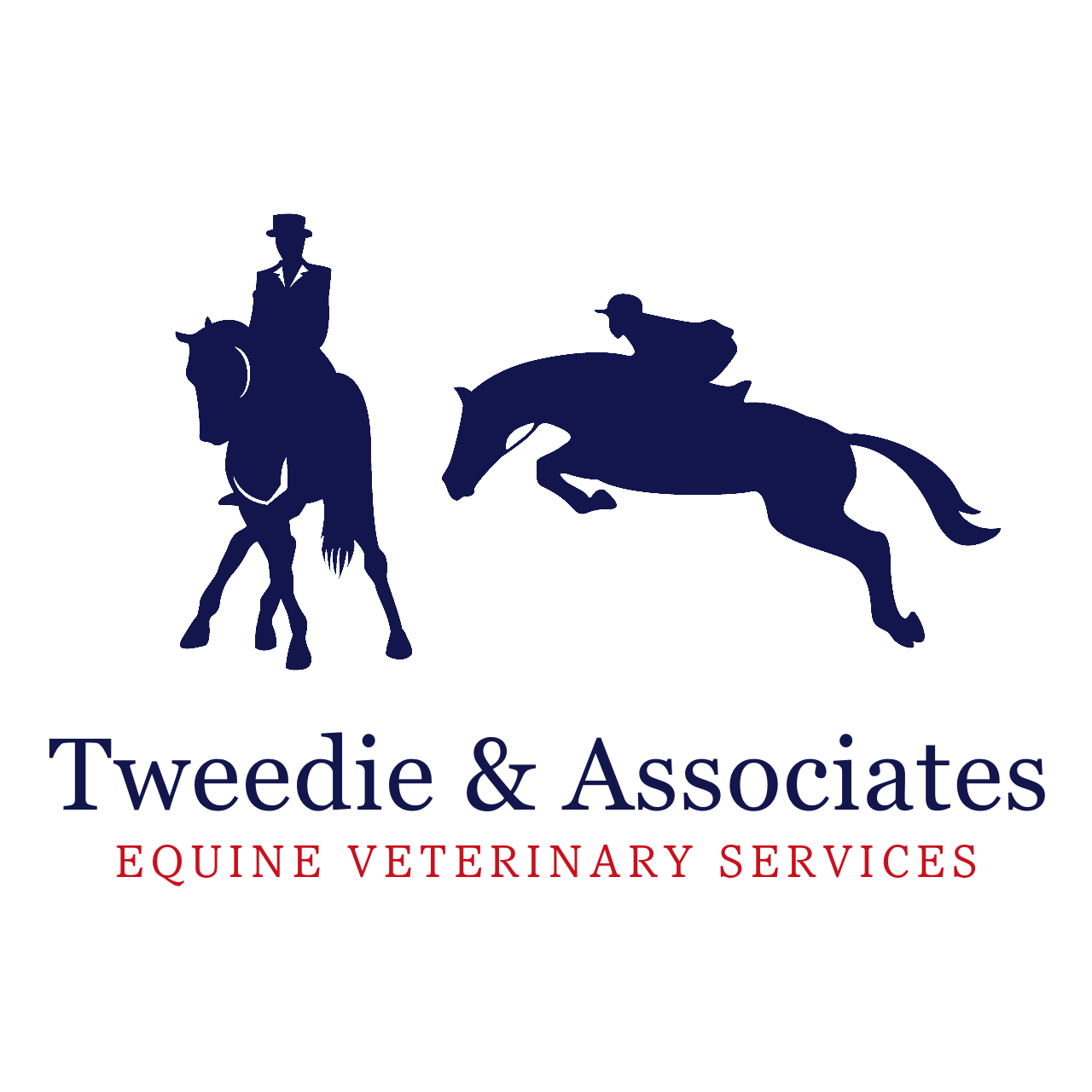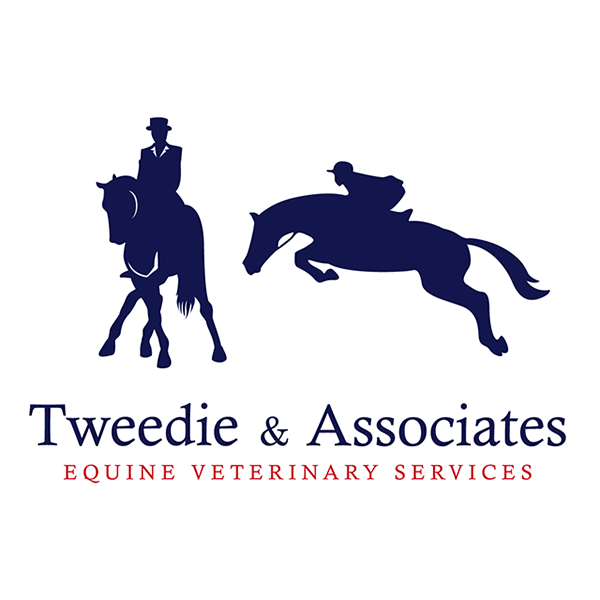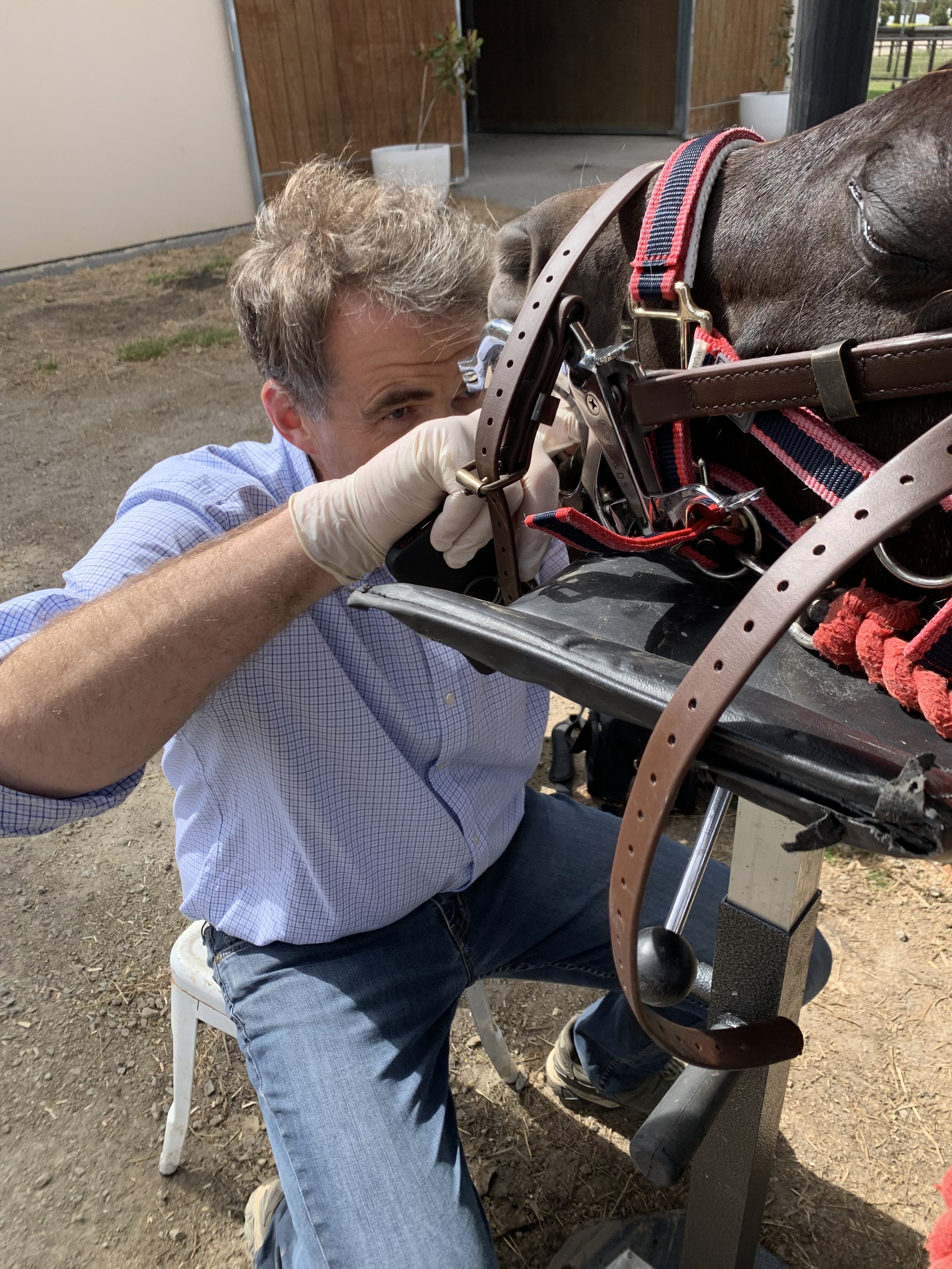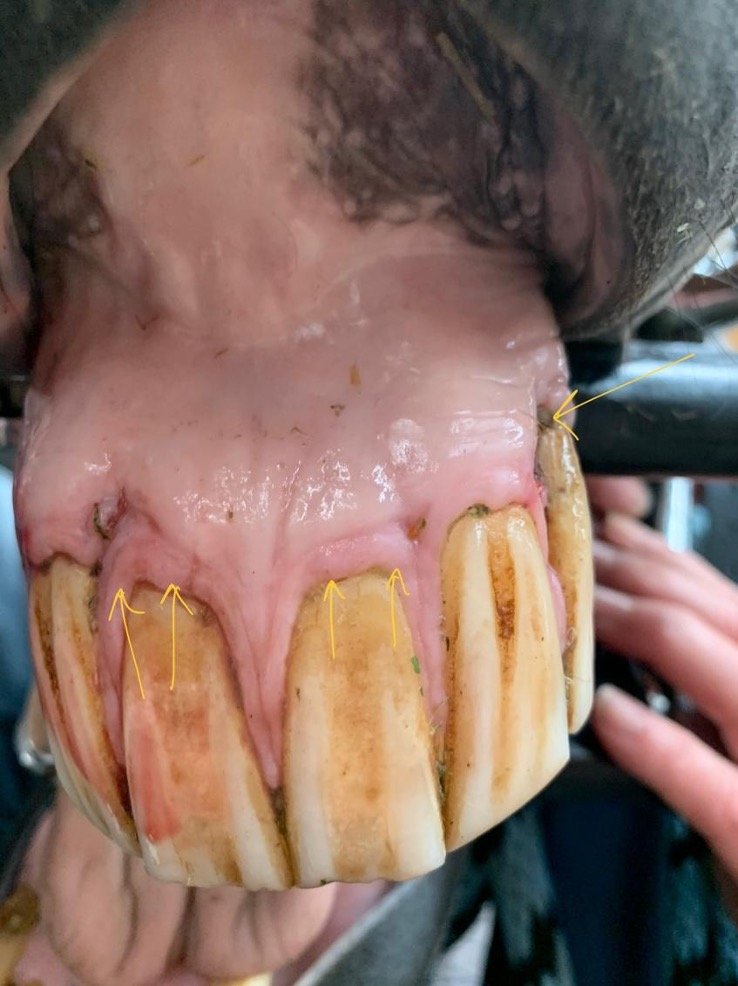DENTAL EXAMINATIONSProviding your horse with the very best dental care involves more than simply rasping the sharp edges off their teeth.
The most qualified person to provide dental care to horses is a veterinary dentist. A veterinarian understands that a thorough examination of every tooth is vital to ensure pathology is identified. The early identification of dental problems is essential so that owners can make dietary changes and/or consider remedial dentistry to ensure the comfort and longevity of their horse.
✓ All of our veterinarians have undertaken further study in the field of equine dentistry. Our vets are highly knowledgeable and have invested considerable time developing their expertise in the area of horse dentistry.
✓ The comfort of your horse is our first priority and our veterinarians will ensure your horse is sedated so that a full examination of each tooth can be undertaken in a calm and safe manner. Adequate sedation also facilitates quick and painless rasping of the teeth as required during the examination.
✓ A written report outlining all findings will be provided to you as an owner for your information and record keeping.
✓ Your peace of mind is important to us so our practice has a set price that includes sedation for all routine equine dental examinations.
✓ Dental Fees are quoted excluding call out fees, but include all sedation. For a single horse the fee is $240, for 4 or more horses done on the same day and same location the fee is $210 per horse. For 6 or more horses there will be no call out fee
To book a dental examination please call 03 5977 5250.
Dental Examinations
Providing a good standard of dental care to horses involves more than simply removing the sharp edges from teeth. Undertaking a comprehensive examination of the mouth and visualising all of the teeth is essential to the dental care decision making process. Our veterinarians are highly skilled in the area of equine dentistry and it is important to note that in the state of Victoria, only a licensed veterinary surgeon is legally able to administer sedation. The administration of adequate sedation ensures your horse has a comfortable experience.
Once your horse is appropriately sedated, your veterinarian will place a gag in the horses mouth and rest their head on a head stand. Your veterinarian will attach a light to visualise the inside of the mouth and use a mirror to examine each tooth.
Did you know that majority of the premolars and molars of a horse have 5 pulp cavities?
The Examination Process
Your veterinarian will examine each of the pulp cavities as well as the edges of each tooth. Each tooth is also examined at gum level on the side closest to the lips and the side closest to the tongue. Just like humans, horses can suffer from peripheral caries so we ensure all aspects of every tooth are examined carefully.
Once the initial examination has been completed your veterinarian will file any sharp points on the teeth. Both the upper and lower arcades of the premolars and molars will be rasped as required.
During the examination your veterinarian will ascertain whether any wolf teeth are present. Wolf teeth can be visible or blind. If required, the wolf teeth can be removed. A nerve block is always placed for this procedure because equine wolf teeth have nerve roots the same as any other tooth. (Removal of wolf teeth without the placement of a nerve block would be unnecessarily painful.)
After completion of the first steps, your veterinarian will remove the gag and make an assessment of the incisor teeth. It is a common misconception that dental disease only affects the molar teeth. There are in fact many diseases that affect the incisors. Equine Odontoclastic Tooth Resorption and Hypercementosis (EORTH) is a syndrome in horses that results in resorptive lesions of the incisors and sometimes canine teeth. This is a painful condition and most often presents clinically with receding gums and a pain response to placement of the gag.
At completion of the examination your veterinarian will advise you of any pathology that has been identified in your horse and offer an individually tailored management plan. A written report will also be emailed to you within 48 hours. Our practice also provides email reminders for all clients and you will receive a reminder via email when your horse is due for another dental examination.
FAQs
Do you sedate all horses?
Yes, all horses are sedated to allow a thorough examination of the mouth. Without this sedation it is not possible to examine the mouth properly. Only a registered veterinary surgeon can legally sedate a horse in Victoria. We gauge the horse on examination and have extensive experience using sedatives to understand the appropriate amount to use when sedating horses.
Do you perform video exams of the teeth?
Yes, we can perform oroscope examinations of the mouth. If you wish for this to be undertaken please advise prior to the consult so that your veterinarian can ensure they bring the specialised camera required for this imaging.
Do you use power tools?
Yes, we use power tools because these allow us to perform the examination quickly, and with more precision than a manual rasp.
Do Power tools cause damage to the teeth?
The safe use of power tools in equine dentistry is operator dependent. If power tools are used for too long, thermal damage to the tooth can result. Our veterinarians are highly experienced and will not use power tools for longer than 10 seconds on each tooth so the tooth does not become excessively hot. Our veterinarians will only remove the very sharp edges. In the case of a large hook, our veterinarians will remove 3-4mm and come back again to see the horse in 3-4 months time at which point more of the hook can be safely removed.
Can you x-ray a horses mouth?
Yes, we can and we often do so. Serial radiographs are very useful to assess the progression of many dental conditions. Radiographs are particularly useful to monitor diseases affecting the incisors.
Can you perform extractions?
Yes, we can perform some extractions in the field, for example wolf teeth removal. Some incisors can also be removed safely in the field. The removal of molars and premolars are more involved surgical procedures and these surgeries are best undertaken in a hospital environment.
What are the costs involved?
Equine dental examinations are charged out as follows;
We charge a call out fee.
We charge a set price for the dental examination, floating of the teeth and the sedation required.
We will only levy additional charges if we need to undertake further procedures like wolf teeth extraction or diagnostics such as radiographs.
Please contact the clinic to discuss the price of a dental examination.
A radiograph of the incisor teeth.
A thorough dental examination involves more than just rasping the teeth.
Our veterinarians routinely use an oroscope to examine the mouth. The ability to visualise the surface of the tooth in detail is hugely valuable to making an accurate diagnosis of any pathology that may be present.









